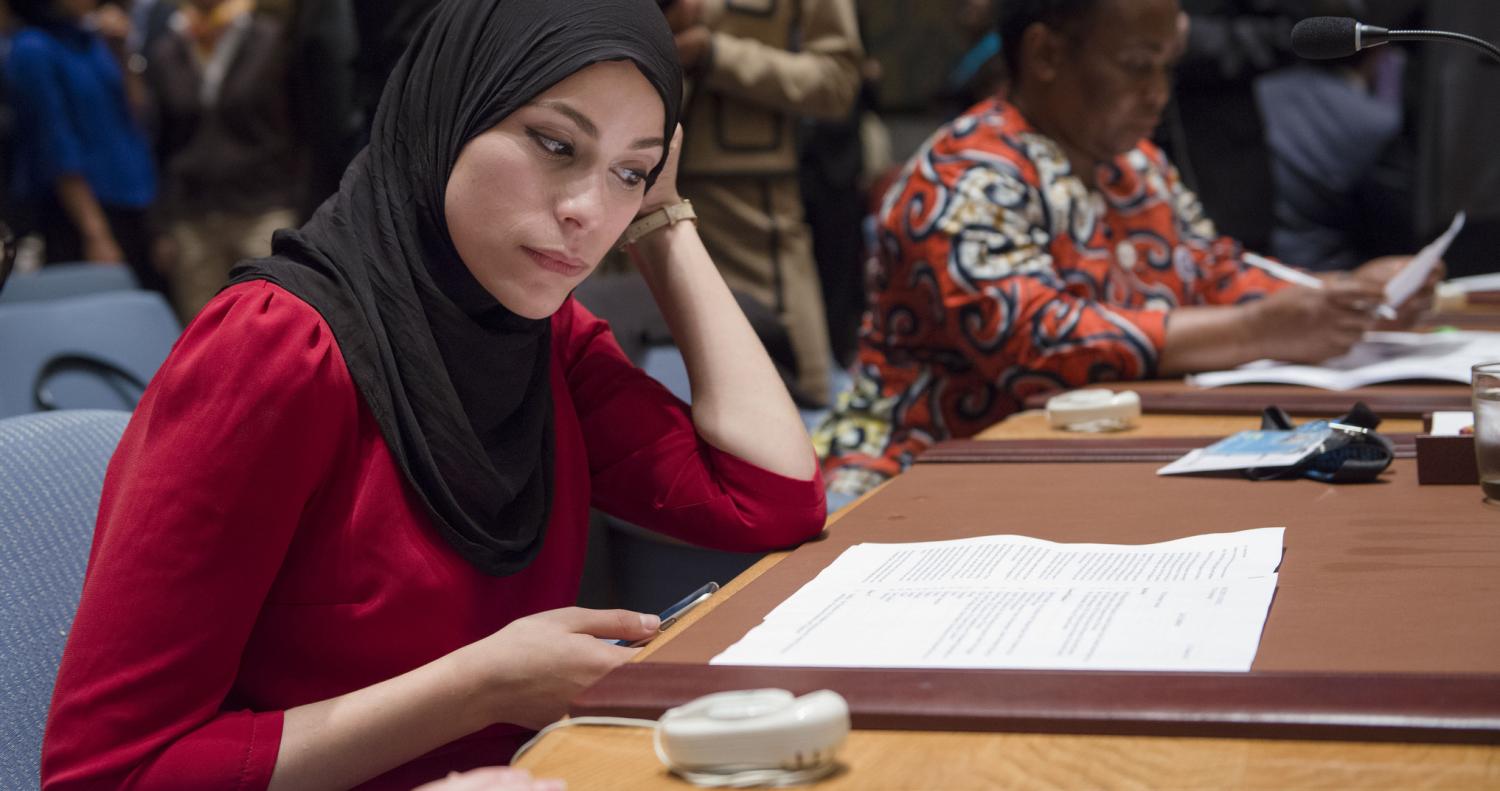On joining AusAID's Gender Equality Section in 2008, I kept a copy of the 2003 Howard-era foreign policy white paper on my shelf. Containing no references to women, women's rights, gender equality or human security, it served both as a stark reminder of a conservative past, and as a symbol of the possibilities that lay ahead as Kevin Rudd promised an expanded aid program and multilateral engagement.
I had been recruited to progress Australia's implementation of UN Security Council Resolution 1325 on Women, Peace and Security and these early days of Australia's bid for a seat on the UN Security Council were a boon for working on gender equality.
Resolution 1325, passed in 2000, had acknowledged for the first time that women's participation and a gender perspective was essential to the maintenance of international peace and security. In 2004, the UN Secretary-General had requested Member States to develop National Action Plans (NAPs) to speed up progress of its implementation (as of August this year, 74 countries had developed such plans).
The inclusion of Women, Peace and Security in Australia's Security Council bid helped shine a light on the aid program's existing support to women peacebuilders in the Asia Pacific region and the work underway to develop a plan that had been rumbling around AusAID. While slow off the mark, Australia finally released its own whole of government National Action Plan on Women, Peace and Security in March 2012. The plan guides the government's work to implement eight Security Council resolutions, setting out how Australia will integrate a gender perspective into all areas of peace and security policymaking and operations. Through its creation, the government ensured it wasn't left behind by international progress in this policy area and gained a useful foreign policy tool.
The latest Foreign Policy White Paper, however, demonstrates there is still work to be done. Policy expertise and understanding of the women in peace and security agenda needs to be expanded from the aid portfolio to the centre of the government's national security paradigm. The same can also be said to build understanding about the contribution that gender and human security make in a more comprehensive approach to security in our region. To do so, the government has a large and growing evidence base to draw from – some of which it has funded – that confirms the importance of women's rights as central to foreign policy and critical to national security, including in preventing violent extremism.
Including a section on gender equality in the White Paper was welcome. But framing of gender equality as a development issue, rather than a strategic foreign policy issue, was disappointing. Indeed, DFAT's Gender Equality and Women's Empowerment Strategy (2016) goes much further in this direction. Even the 2016 Defence White Paper details its commitments to implement 17 of the 24 actions in the National Action Plan, and emphasises that resolution 1325 'recognises that security, stability and peace can only be achieved through a gender inclusive approach to conflict resolution and peacebuilding'.
The analysis in the Foreign Policy White Paper appears on just one line on page 93: 'gender inequality undermines global prosperity, stability and security. It contributes to and often exacerbates a range of challenges, including poverty, weak governance and conflict and violent extremism.' The White Paper missed an opportunity to demonstrate a depth of understanding on how gender intersects with sustainable development, human rights, peace, security and regional stability.
In eschewing reference to the National Action Plan or substantive gender analysis, the White Paper also missed a golden opportunity to inspire a vision that at least matched and advanced the government's current policy directions. For instance, work is well underway across government and civil society to prepare for the second National Action Plan (the first expires in 2018). The Turnbull government also recently reconfirmed its commitment in April 2017 when tabling the 2016 NAP Progress Report in parliament.
The omission was also surprising, given the opportunity it provided to showcase Australia's work at the UN Security Council (featured in Chapter 6: Global Cooperation). During Australia's 2013-14 stint on the Security Council, the government identified Women, Peace and Security as a priority and as a key achievement of its term.
Achieving an Australian foreign policy guided by feminist principles and practice will require a long-term vision and concerted effort across government. Continuing to resource the Ambassador for Women and Girls' role to advance gender equality through foreign policy will be critical. Constructively engaging and resourcing civil society will also help develop and support the credibility of Australia's second National Action Plan. The nuanced analysis within the civil society submissions to the White Paper will also help to expand the use of 'human security' in the government's lexicon.
The government has boasted that 'Australia is one of the leading nations in this (policy) space', yet exclusion of the NAP in the White Paper proves that Australia still stands apart from its more progressive partners. Canada, Norway and Finland have all articulated feminist foreign policies and feminist international development programs. This follows a declaration by Sweden, which, in a feminist foreign policy platform in 2016, declared:
Equality between women and men is a fundamental aim of Swedish foreign policy. Ensuring that women and girls can enjoy their fundamental human rights is both an obligation within the framework of our international commitments, and a prerequisite for reaching Sweden's broader foreign policy goals on peace, and security and sustainable development.
Gender equality is not only an obligation but a prerequisite for achieving foreign policy goals. Australia still has an opportunity to advance a human rights-based and feminist informed approach to foreign policy, international development and humanitarian assistance. It is just going to take a little longer to catch up to our more progressive friends.

